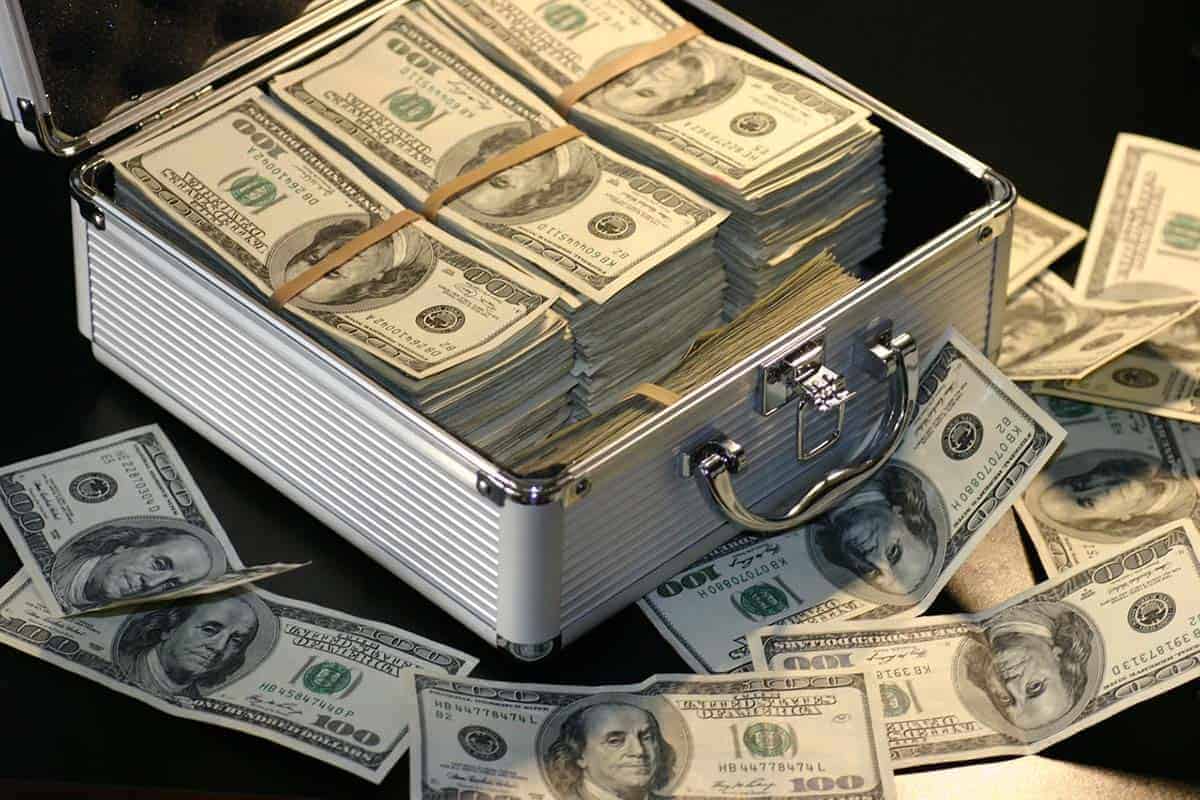How much cash can you put in the bank without being flagged?

Can I deposit $5000 cash in bank
How much cash can you deposit You can deposit as much as you need to, but your financial institution may be required to report your deposit to the federal government.
Cached
How often can you deposit cash without raising suspicion
If you receive a cash payment of over $10,000 in one transaction or two or more transactions within 12 months, you'll need to report it to the IRS.
Cached
How much cash can I deposit without red flag
A cash deposit of more than $10,000 into your bank account requires special handling. The IRS requires banks and businesses to file Form 8300, the Currency Transaction Report, if they receive cash payments over $10,000. Depositing more than $10,000 will not result in immediate questioning from authorities, however.
Is depositing $2,000 in cash suspicious
Financial institutions are required to report cash deposits of $10,000 or more to the Financial Crimes Enforcement Network (FinCEN) in the United States, and also structuring to avoid the $10,000 threshold is also considered suspicious and reportable.
Is depositing $1000 cash suspicious
Banks report individuals who deposit $10,000 or more in cash. The IRS typically shares suspicious deposit or withdrawal activity with local and state authorities, Castaneda says. The federal law extends to businesses that receive funds to purchase more expensive items, such as cars, homes or other big amenities.
Is depositing $5,000 suspicious
Depending on the situation, deposits smaller than $10,000 can also get the attention of the IRS. For example, if you usually have less than $1,000 in a checking account or savings account, and all of a sudden, you make bank deposits worth $5,000, the bank will likely file a suspicious activity report on your deposit.
What is the $3000 rule
Rule. The requirement that financial institutions verify and record the identity of each cash purchaser of money orders and bank, cashier's, and traveler's checks in excess of $3,000.
How often can I deposit $10 000 cash
When it comes to cash deposits being reported to the IRS, $10,000 is the magic number. Whenever you deposit cash payments from a customer totaling $10,000, the bank will report them to the IRS. This can be in the form of a single transaction or multiple related payments over the year that add up to $10,000.
What happens if you deposit $10,000 in cash
Depositing a big amount of cash that is $10,000 or more means your bank or credit union will report it to the federal government. The $10,000 threshold was created as part of the Bank Secrecy Act, passed by Congress in 1970, and adjusted with the Patriot Act in 2002.
Is depositing 3000 cash suspicious
As mentioned, you can deposit large amounts of cash without raising suspicion as long as you have nothing to hide. The teller will take down your identification details and will use this information to file a Currency Transaction Report that will be sent to the IRS.
How much cash before bank reports
$10,000
Federal law governs how much cash you can deposit before a bank reports it. Dec. 19, 2022, at 1:15 p.m. Does a Bank Report Large Cash Deposits Depositing a big amount of cash that is $10,000 or more means your bank or credit union will report it to the federal government.
Can I deposit 5000 cash in bank everyday
Depending on the situation, deposits smaller than $10,000 can also get the attention of the IRS. For example, if you usually have less than $1,000 in a checking account or savings account, and all of a sudden, you make bank deposits worth $5,000, the bank will likely file a suspicious activity report on your deposit.
Is depositing 5000 cash suspicious
Depending on the situation, deposits smaller than $10,000 can also get the attention of the IRS. For example, if you usually have less than $1,000 in a checking account or savings account, and all of a sudden, you make bank deposits worth $5,000, the bank will likely file a suspicious activity report on your deposit.
Is depositing cash a red flag
The $10,000 Rule
Ever wondered how much cash deposit is suspicious The Rule, as created by the Bank Secrecy Act, declares that any individual or business receiving more than $10 000 in a single or multiple cash transactions is legally obligated to report this to the Internal Revenue Service (IRS).
How much cash can you deposit in a month without getting reported
Depositing a big amount of cash that is $10,000 or more means your bank or credit union will report it to the federal government. The $10,000 threshold was created as part of the Bank Secrecy Act, passed by Congress in 1970, and adjusted with the Patriot Act in 2002.



